Asrani
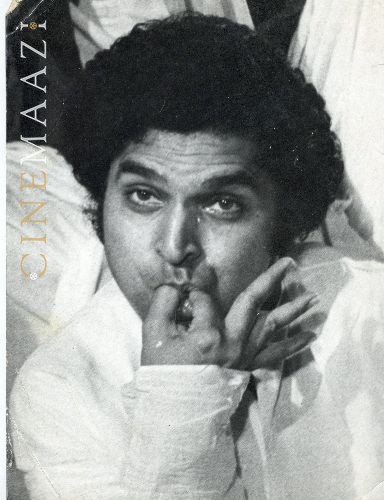
Subscribe to read full article
This section is for paid subscribers only. Our subscription is only $37/- for one full year.
You get unlimited access to all paid section and features on the website with this subscription.
Not ready for a full subscription?
You can access this article for $2 , and have it saved to your account for one year.
- Real Name: Govardhan Asrani
- Born: 1 January 1941 (State of Jaipur, British India)
- Died: 20 October 2025 (Mumbai)
- Primary Cinema: Hindi
- Spouse: Manju Bansal
- Children: Naveen Asrani
Perhaps best identified by his ‘Angrezo ke zamaane ke jailor’ act in Sholay (1975), Asrani has several memorable comedic roles to his credit. Over the course of a career spanning five decades, he has acted in approximately 350 films, playing lead hero, as well as character and supporting roles. While he largely played the comedian's role from 1966 to 2013, he was also seen essaying the close friend of the lead hero in several films between 1972 and 1994. Among the films that feature some of his popular comedic roles are Aaj Ki Taaza Khabar (1973), Roti (1974), Prem Nagar (1974), Chupke Chupke (1975), Chhoti Si Baat (1976), Rafoo Chakkar (1975), Sholay (1975), Balika Badhu (1976), Fakira (1976), Anurodh (1977), Chhailla Babu (1977), Pati Patni Aur Woh (1978) and Hamare Tumhare (1979). He played the lead hero in Gujarati films from 1972 to 1984, and even featured as hero in Hindi films such as Chala Murari Hero Banne (1977) and Salaam Memsaab (1979). He also directed six films, namely Udaan (1997), Dil Hi To Hai (1992), Hum Nahin Sudhrenge (1980), Salaam Memsaab, Chala Murari Hero Banne, and Amdavad No Rikshawalo, as well as the TV series Natkhad Narad (1985). He won the Filmfare Award for Best Comedian twice - for his performance as Champak Boomia/ Amit Desai in Aaj Ki Taaza Khabar, and for his performance as Sharat in Balika Badhu (1976).
He was born Govardhan Asrani on 1 January, 1940, into a middle class Sindhi family in Jaipur state. His father had migrated to Jaipur post Partition and started a business selling carpets. One of seven children, he did not show any interest in business and was also weak at mathematics. Completing his matriculation from St Xavier’s School, he graduated from Rajasthan College, Jaipur. In order to fund his education, he simultaneously worked as a voice artist with All India Radio, Jaipur.
His ultimate aim, however, was to become an actor, and he worked towards this goal, starting to learn acting from Sahitya Kalbhai Thakkar from 1960 to 1962. Travelling to Bombay in 1962 to pursue acting opportunities, he was advised by renowned filmmaker Hrishikesh Mukherjee to learn acting professionally. He went on to join the Film Institute in Poona (now Film and Television Institute of India, Pune) in 1964, completing his course in 1966.
He went on to make his acting debut in 1967 with a Gujarati film, going on to act in four other films in Gujarati from 1967 to 1969. His debut in Hindi cinema came with Hare Kaanch Ki Chudiyaan in 1967. He played leading man Biswajeet's friend in the film. While he acted in a serious role in Khoon Pasina (1977), he received offers mainly for comedic roles, or as the close friend of the lead actor. The years between 1972 and 1979 saw him feature in approximately 96 films. Impressing filmmakers, he went on to be cast repeatedly by directors such as Hrishikesh Mukherjee, Atma Ram, and Gulzar. Winning attention for his work in hit films, his demand was at its peak in the 70s. He featured in approximately 100 films between 1970 and 1979, essaying effective roles in them. A close friend of leading hero Rajesh Khanna, he worked in no less than 25 films with the superstar which includes 21 hit films.
The 1980s too were a busy decade for the actor. He featured in over 107 films in the period. However, unlike his roles from 1970-1984 which were pivotal to the plot, his roles gradually became minor. This was mainly due to the fact that the concept of a comedian was becoming defunct, and action films ruled at the box office from 1985-1994.
Asrani enjoyed a successful parallel career in Gujarati films in 1970s and 1980s as a lead hero. In 1974, he directed his first film in Gujarati - Amdavad No Rikshawalo featuring himself in the lead role. The song Hu Amdavad no rikshawalo sung by Kishore Kumar was picturised on him. Some of his successful Gujarati films as lead protagonist include Amdavad No Rikshawalo, Saat Qaidi (1986), Sansar Chakra (1978), Pankhi No Malo (1981), Jugal Jodi (1982), Maa Baap (1987), and Chel Chabilo Gujarati (1983). From the 90s he moved to essaying comic or supporting roles in Gujarati films such as Piyu Gayo Pardesh (2000), Baap Dhamal Dikhra (2017).
Over the years, he also had successful songs picturised on him in Hindi. These include the Kishore Kumar-rendered Achcha chaloji baba maaf kardo from Hamare Tumhare, and Pyar main karoonga from Yeh Kaisa Insaf (1980). The song Mannu bhai motor chali pam was sung by him with Kishore Kumar and was pictured on Rishi Kapoor and him, in Phool Khile Hain Gulshan Gulshan (1978).
Featuring in approximately 73 Hindi films in the 90s in minor roles, he did win attention for his serious role that offered scope for performance in Muqabla (1993). Again he was seen in a pivotal role in D Rama Naidu’s Taqdeerwala (1995). With comedy becoming the flavour of the season again, he was seen in good roles in films directed by David Dhawan and Priyadarshan from 1993 till 2012. The new millennium saw him appear in blockbuster films such as Hera Pheri (2000), Chup Chup Ke (2006), Hulchul (2004) and Deewane Huye Pagal (2005). He played Manmohit Chandran, an asylum patient, in the romantic drama Kyun Ki (2005). An integral part of comedies by Sajid Nadiadwala, Priyadarshan post 2000, his assignments reduced after 2009.
Asrani acted with superstar Rajesh Khanna in 25 films. They had met on the sets of Bawarchi (1972) and their friendship grew during Namak Haram (1973). They worked till Ghar Parivaar in 1991. Khanna would apparently always try to ensure Asrani played a role in his films. He also formed a successful trio along with Kader Khan and Shakti Kapoor from 1982 till 1998, featuring in films produced by South Indian production houses films. His popularity received a boost in these films directed by makers like Tatineni Rama Rao, K Raghavendra Rao, K Bapaiah, and Narayana Rao Dasari.
While he is largely known for his comic roles, he also essayed atypical roles such as that of the evil brother in Koshish (1972), the double role of a hippie and villager in LV Prasad's Bidaai (1974), a beedi-smoking, ganji-sporting wastrel in Hrishikesh Mukherjee's Chaitali (1975), a romantic in B R Chopra's Nikaah (1982), and a pimp in K S Prakash Rao's Prem Nagar (1974). Later, he played antagonist roles in Ab Kya Hoga (1977) and Teri Meherbaniyan (1985).
More recently, he played the role of a grandfather in the popular web series Permanent Roommates (2018). He also played the role of DGP Director General of Police in the buddy cop comedy serial Partners Trouble Ho Gayi Double (2017), and Thehrey Singh in the film Bunty Aur Babli 2 (2021).
He ventured into production in the year 1982, setting up a Gujarati production company with fellow artistes Dinesh Hingoo, Harish Patel and Salim Parvez (son of famous supporting actor Yunus Parvez). It was successful and the company dissolved more than a decade later in 1996 with a large profit. He also invested in textiles, and acted as investor for other actors, until 1991 when he apparently suffered considerable losses. He also served as director of the Film Institute in Pune from 1988 to 1993.
He married actress Manju Bansal, whom he had worked with in films like Aaj Ki Taaza Khabar and Namak Haram (1973). Post marriage, they went on to work in films such as Tapasya (1976), Chandi Sona (1977), Jaan-E-Bahaar (1979), Jurmana (1979), Nalayak (1979), Sarkari Mehmaan (1979) and Chor Sipahee (1977). They also acted together in Hum Nahin Sudhrenge (1980), a home production directed by Asrani.
He passed away on 20 October 2025 at tha age of 84 just hours after he extended Diwali wishes to his followers online.
-
Filmography (233)
SortRole
-

Dhamaal 2007
-
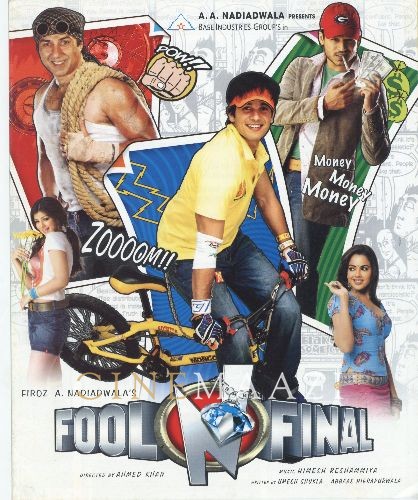
Fool N Final 2007
-

Insan 2005
-
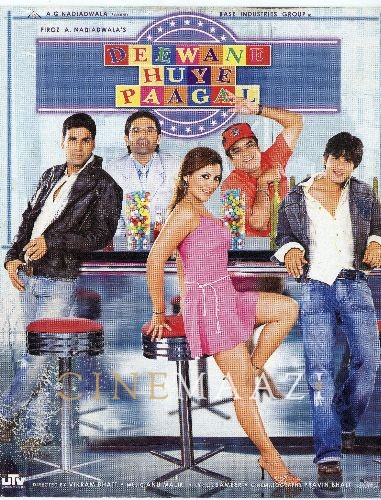
Deewane Huye Paagal 2005
-
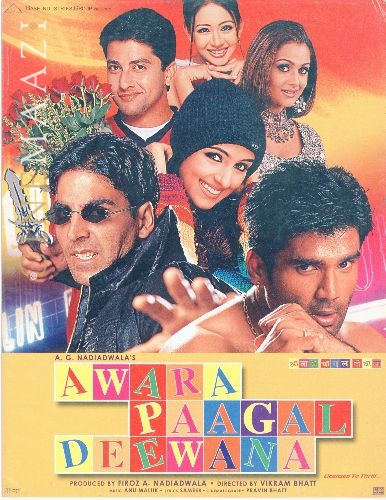
Awara Paagal Deewana 2002
-
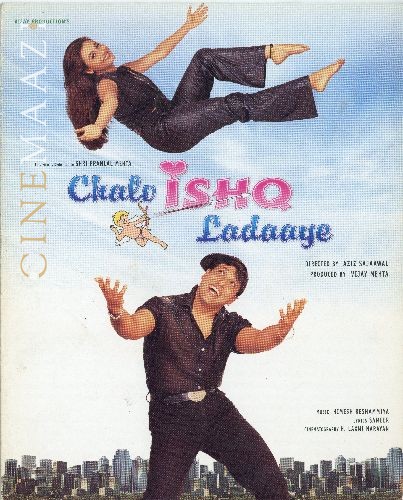
Chalo Ishq Ladaaye 2002
-
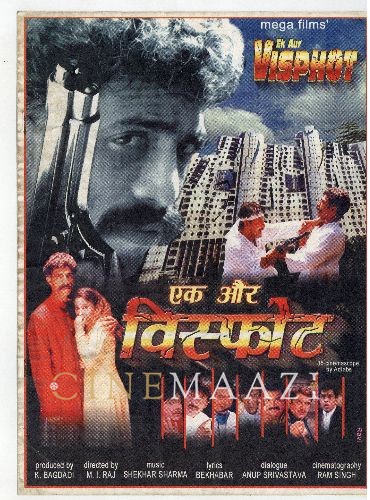
Ek Aur Visphot 2002
-
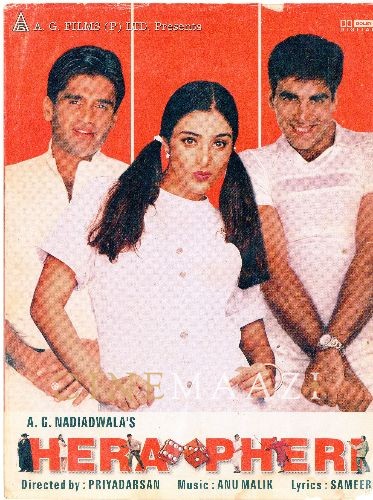
Hera Pheri 2000
-

Heeralal Pannalal 1999
-

Kartoos 1999
-
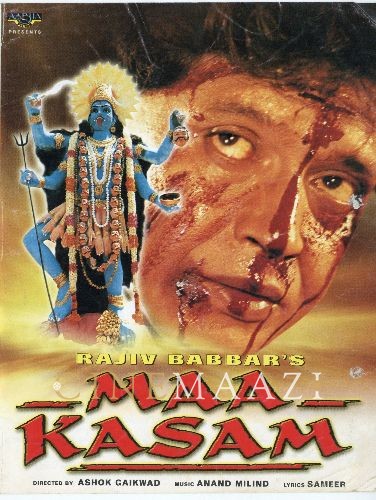
Maa Kasam 1999
-
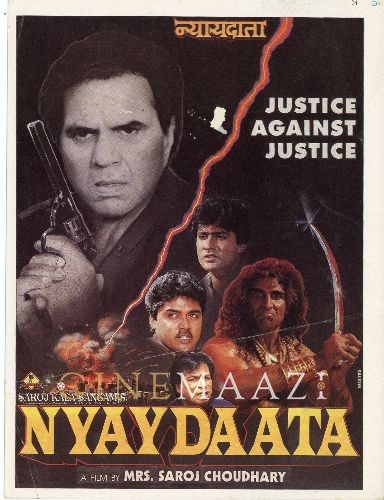
Nyaydaata 1999
-



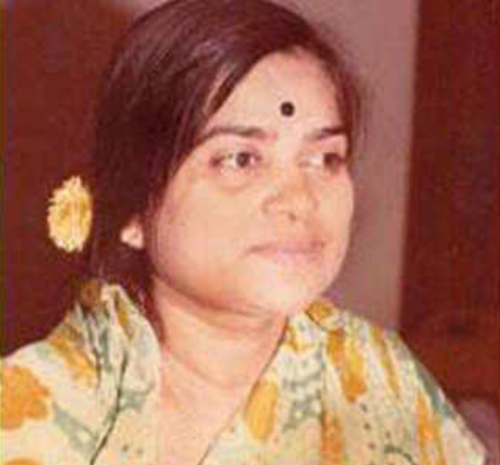
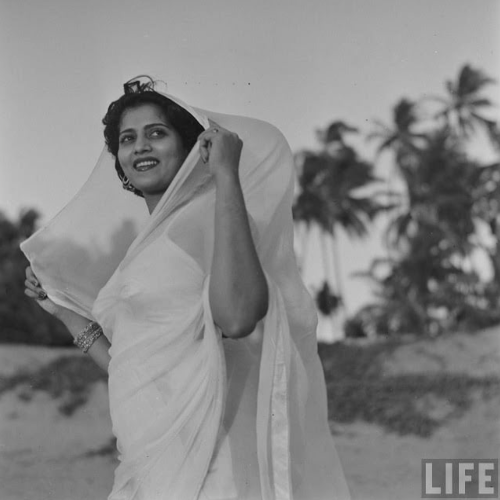




.jpg)



